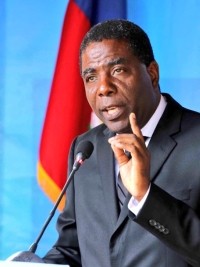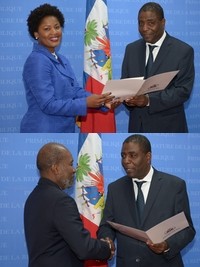
Like Stalin and Churchill huddled over a map of Europe in 1944, Ted Cruz and John Kasich began a very odd week by announcing — publicly, for reasons known only to them — that they were divvying up the remaining primary states in order to maintain individual spheres of influence. Cruz would get Indiana (which is next to Ohio), while Kasich would get New Mexico (which shares a border with Texas). Super-logical.
Of course, primary voters — unlike, say, Polish peasants — tend to do whatever they want, so all this plotting didn’t exactly make Cruz and Kasich grandmasters of global domination. More like a couple of guys playing Risk in somebody’s basement. Ural attacks Irkutsk! Coming for you next, Kamchatka!
And like most games of Risk, the whole thing fell apart within a few hours, as both campaigns backtracked and said they weren’t telling voters in any state not to vote for their chosen candidates, exactly. They just weren’t telling voters they should vote for their chosen candidates, either.
“I’m not telling anybody anything in Indiana, because I’m not competing there,” Kasich told the baffled hosts of NBC’s “Today” show. He accused the media of obsessing over process, which seemed odd, since it was his and Cruz’s campaigns that had apparently spent days, if not weeks, dividing up media markets according to the latest polls.
When Matt Lauer finally asked him point blank whom Republican voters in Indiana should vote for, Kasich replied: “I’m not getting into that, Matt. Things are not so plain and simple.”
No offense to Lauer or Savannah Guthrie here, but when you manage to make a morning show interview look like a scene from “Frost/Nixon,” it’s probably an indication that you should step back and think through what you’re doing.
In the end, the short-lived pact between Cruz and Kasich — followed closely by Cruz’s equally odd announcement that he was taking on a running mate, but more about that in a minute — served only to make a couple of things even clearer than they were before.
The first is that you should never, ever take strategic advice from Mitt Romney, unless it has to do with buying up companies and shedding overhead.
And the second is that there is a substantive vacuum at the heart of this year’s non-Trump campaigns — a vacuum that has, as much as anything else, enabled Trump to emerge, especially after Tuesday’s romp through the Eastern Seaboard, as a near-certain nominee.
It’s not just that the Cruz and Kasich campaigns managed, in the space of a few hours, to validate all of Trump’s conspiracy theories about the dark soul of the Republican establishment — although they did that pretty well.
For weeks, after all, Trump has been going around saying that corrupt Republicans are rigging the system against him, even though, as I’ve written before, the nominating rules of the party have always been the same.
But whatever high ground Trump’s opponents may have commanded was pretty much squandered when Cruz and Kasich announced that they were, in fact, going to game the system in an effort to subvert Trump at the convention. Now, when Trump says the party elites are trying to rig the process and undermine the voters, you’d have to admit he’s not crazy.
What’s more illuminating about the nonaggression pact, though, is that it even seemed plausible to both sides in the first place. In a world where Cruz and Kasich, Trump’s only remaining obstacles, were offering any galvanizing arguments of their own, there couldn’t possibly be any discussion of one side ceding voters to the other.
They represent, after all, two sharply opposed views of the party’s future. Cruz is a divider and a moral crusader, a peddler of nostalgia, a party crasher who essentially disdains government and those who serve in it.
Kasich is a bridge builder and a futurist, a successful insider who embraces the power of governance. Where Cruz sees a Republican Party that has destroyed itself by cravenly compromising its principles, Kasich sees a party that has grown too inflexible, too narrow and too often mean.
But neither camp has advanced much by way of a substantive vision. Cruz’s campaign is a bland rhetorical exercise, lacking any signature proposals. Kasich goes on about the Ohio record, but I defy anyone to synthesize his plan for replicating that success as president.
So why should a bunch of principles get in the way of tactics?





 11:16 AM
11:16 AM
 Unknown
Unknown






















